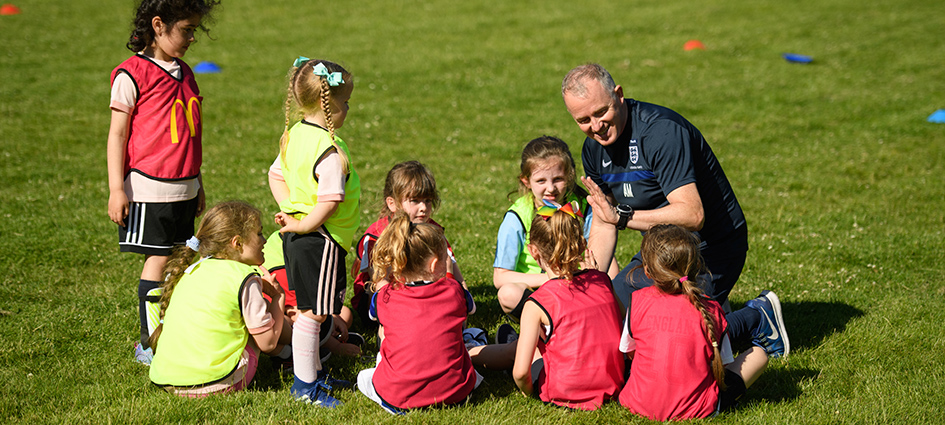
Encouraging creativity
- The Boot Room
- 03 January 2020
The Boot Room explores how you can encourage creativity in the Foundation Phase by using a positive approach with your players.
Creativity. What is it? Can it be increased? Do we all have it?There are a number of definitions but there seems to be an agreement that the creative process involves a number of things, most commonly:
- imagination
- originality - the ability to come up with ideas that are new and unusual
- being able to generate a variety of different ideas through “divergent thinking”
- problem solving and the application of knowledge and imagination to a given situation
- the ability to produce an outcome of value and worth.
In football, creativity can be encouraged or it can be stifled by your actions, behaviours and responses. The England DNA in the Foundation Phase uses the word “creative” quite freely, yet if the environment you create isn’t right, then it won’t just happen.
If there’s a general view that everyone has the ability to think creatively, how might this help produce the next creative player?
The language used with your players is key to achieving this. When coaching you shouldn’t use phrases such as: “where did you get that silly idea?”, “It’s not going to be as easy as you think” or “how many times do I have to tell you?”
Instead use phrases like: “that’s an interesting idea”, “I’m sure you can get it right” or “have you thought of some alternatives?” Using a positive, encouraging approach can really help to bring out the best in your players.
Communicating with your players in this way is also more likely to help them make connections between one area of learning and another, which will extend their understanding. It will also help young players develop a greater sense of belief and confidence in their ability.
If you want to try and increase creative returns in your young players, it’s important to remember to:
- give some ownership and choice to your players – they’re more likely to be engaged and motivated if they’re listened to and sense that the session is about them and their development
- respond to new ideas with support and encouragement
- encourage new ways of doing things
- allow time for experimentation
- show that you’re excited by learning and trying new things
- create more opportunities where the children can just “play the game”.
To learn more about Foundation Phase DNA, click here.


